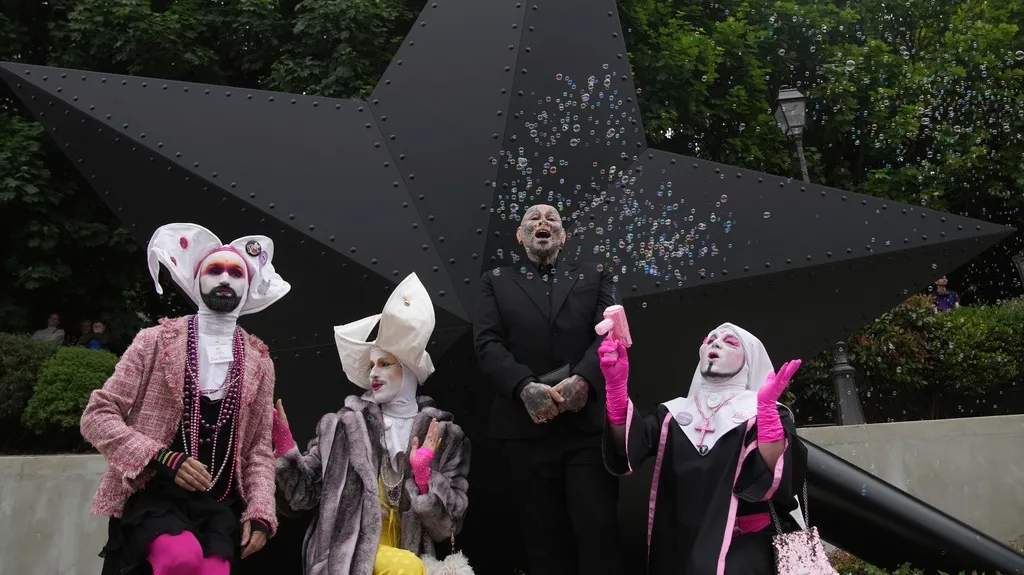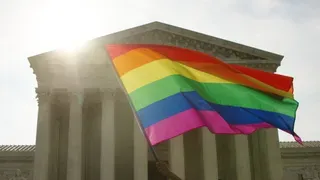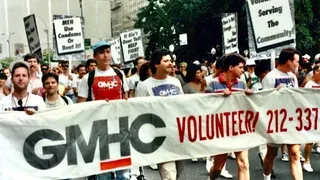February 8, 2011
Gay Asylum Seekers Gaining Ground?
Kilian Melloy READ TIME: 5 MIN.
An American organization that assists GLBT asylum seekers reports that it helped a record number of gays from hostile home countries secure safe haven in 2010.
Immigration Equality, working together with legal volunteers, successfully assisted 101 GLBT asylum seekers last year, according to a press release issued by the organization on Feb. 7. The largest number from a single country was 28; those refugees came from Jamaica, one of the most violently homophobic nations in the world.
Gays in Jamaica are reportedly subject to mob violence, sometimes beaten and even murdered in their own homes. Homophobia is deeply rooted in Jamaican culture, with anti-gay songs played at dance halls. Homophobia is further inculcated into the society by anti-gay religious leaders.
A further 10 gay asylum seekers came from other Caribbean nations, the press release noted.
Other sexual minorities who won the right to stay in the United States and not be shipped back to face anti-gay persecution--which can often be life-threatening--came from Russia (seven of the 101 individuals), Uzbekistan (four asylum seekers), and Ghana (three individuals), among other nations.
Russia and other nations that once belonged to the now-defunct Soviet Union have demonstrated a deep antipathy toward gays. While still in power, Moscow's former mayor, Yuri Luzhkov, ensured that gay pride parades, which never got official permission to go ahead during his tenure, were brutally quashed by police.
Ghana, an African nation, recently voted to remove gays from a United Nations resolution instructing that investigators should look into killings "committed for any discriminatory reason," a deletion that generated a global outcry. (GLBT protections were later restored to the resolution following a U.S.-led push.) In addition to the three refugees from Ghana, another six came from other African nations, most of which impose strict penalties on gays. One African country, Uganda, has been considering a bill to put gays to death for over a year.
The news release describes Immigration Equality as "a national organization that helps obtain asylum for individuals persecuted in their home country based on their sexual orientation, gender identity or HIV-status." The release said that the group "maintains the largest pro bono network of attorneys--in addition to its in-house legal staff--dedicated solely to securing asylum for lesbian, gay, bisexual and transgender asylum seekers."
2010's tally of 101 successful refugees aided by the organization is only part of the picture from last year, the release noted. "In addition to the 2010 wins announced today, the organization has 97 additional cases, filed in 2010, which are awaiting a ruling, as well as several cases filed prior to 2010."
"For too many lesbian, gay, bisexual and transgender people, the world remains a dangerous place," the group's executive director, Rachel B. Tiven, commented. "In many cases, the clients who turn to Immigration Equality for help are literally running for their lives.
"They have been mistreated and beaten by authorities in their home country, disowned by their families and ostracized by society," Tiven continued. "By offering them safe haven, the United States is not only saving their lives, but benefitting from the talent, skills and service these asylees bring to our country. We are proud, and honored, to help them begin life anew here in their adopted homeland."
"Since the mid-1990s, the United States has recognized persecution due to sexual orientation and gender identity as a basis for seeking asylum," the release read. "In the past five years, Immigration Equality and its partner law firms have represented more than 500 LGBT people fleeing persecution abroad. Clients have hailed from some of the most notoriously homophobic countries in the world, including Uganda, Syria, Egypt and elsewhere."
"Every day, we hear from vulnerable LGBT people who desperately need legal help and have nowhere else to turn," the group's legal director, Victoria Neilson, said. "Our in-house legal staff maintains an average open case load of more than 100 cases at any given time.
"It is our generous network of pro bono firms, which donate so much time and energy to our clients, that make the breadth of our work possible. With their help, we are able to tackle some of the most complicated, heart-wrenching cases and ensure that we help as many people as possible."
Though Immigration Equality's success rate last year is encouraging, advocates insist that there is much more to be done--not an easy task, given the country's current anti-immigration climate. Moreover, as previously reported at EDGE, gays are still subject to stereotypes that can endanger their asylum cases if they are perceived by immigration officials as being "not gay enough."
Gay asylum seekers already face a tough burden of proof. They must convince immigration judges not only that they genuinely are gay, but also that they face peril if they return to their homelands. Unfortunately, immigration judges are as apt as anyone else to harbor stereotyped ideas of what constitutes "gay," and men who fail to dress and act in ways that match those preconceived notions may be dismissed as lying about their sexual orientation in order to gain entry to the United States.
But gays--like straights--express themselves across a range of personal affect and demeanor. A "macho" man might be just as sexually and romantically attracted to persons of the same gender as a "nellie," or overtly effeminate, man.
For gays coming from severely repressive nations, acting straight can be a deeply ingrained survival mechanism--but one that simply camouflages an authentic sexual and romantic attraction toward individuals of the same gender.
National stereotypes can also work against asylum seekers. Skeptical immigration officials might not appreciate the genuine danger that an asylum seeker from a country like Brazil, which has an image of being a place where flamboyant gays are accepted and celebrated, thanks to images of lavish Pride parades in cities like Rio de Janeiro and Sao Paulo.
American families that include same-sex partners from other nations face especially heartbreaking roadblocks, because federal law stipulates that gay and lesbian families may not be recognized on the federal level. While heterosexuals are free to sponsor their foreign national life partners, gays face often-insurmountable struggles. For many, the result is anguish; for some, like J. W. Lown, formerly the Republican mayor of San Angelo, Texas, immigration to a beloved other's home nation, or to a third country with more compassionate guidelines, is a solution.
"It wasn't a decision that any U.S. citizen should have to make," said Lown, who moved to Mexico with his life partner, an illegal alien, after winning his fourth term as mayor, giving up everything for love. "I left a home. I left a ranch. I left a promising political career."
Gay asylum seekers sometimes become causes c�l�bre, sparking organized drives to convince governments to allow them to remain where they are safe--and, sometimes, generating protests when gay refugees are deported to dangerous situations in anti-gay nations.
In Britain, a Pakistani gay man named Mohammed Asif recently won his bid to be granted permission to stay, reported LGBT Asylum News on Feb. 8.
But such happy endings are not uniformly the case. In 2008, the deportation of a Ugandan gay man named John Nyombi by British officials sparked a protest. Another gay refugee, Babakhan Badalov, an Azerbaijani national, was also deported. In both cases, supporters of the men said that the government had broken its own laws, with Nyombi's lawyers calling their client's deportation "an illegal act of the UK Border Agency," and advocates for Badalov saying that the UK Border Agency altered their details against Badalov just before removing him from the country, and, moreover, did so on a Saturday, when the action would not draw immediate scrutiny.
Further, Badalov's supporters claim, the gay refugee was addressed abusively by one Border Agency officer, who reportedly told Badalov, "You make us sick.... you're going back where you belong."
Kilian Melloy serves as EDGE Media Network's Associate Arts Editor and Staff Contributor. His professional memberships include the National Lesbian & Gay Journalists Association, the Boston Online Film Critics Association, The Gay and Lesbian Entertainment Critics Association, and the Boston Theater Critics Association's Elliot Norton Awards Committee.







